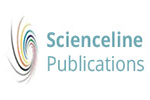(2018) Effect of cold stress and various suitable remedies on performance of broiler chicken. Journal of World's Poultry Research. pp. 66-73. ISSN 2322455X (ISSN)
|
Text
J World Poult Res 8(3) 66-73, 2018.pdf - Published Version Download (595kB) |
Abstract
A biological trial was conducted on commercial chicks during the winter months (December and January). Day old commercial meat type broiler chicks (273) were procured from a reputed source. Cold conditioning (20C to 80C) at third and fourth day of age for 3-4 hours was provided to 78 birds. These early cold conditioned birds were kept separate until distributed into respective treatment groups (fifth and sixth). At the end of second week, the chicks were individually weighed, distributed into 7 treatment groups of 3 replicates with 13 chicks in each replicate. Cold challenge @ 20C to 80C for 8 hours was provided from third week of age to sixth week of their age for all treatment groups except first and fifth treatment groups. The broiler birds in the treatment groups T1 and T5 were reared under normal temperature conditions (250C). Treatment group first (T1) was kept as control group. Antioxidant Vitamin E 250 mg per kg of feed was supplemented to the basal diet in the third treatment group. Chromium 0.1 gram per kg of feed was supplemented to the basal diet in the fourth treatment group. Chromium 0.2 gram per kg of feed was supplemented to the basal diet in the seventh treatment group. The data on individual body weight of the experimental birds and the cumulative feed consumption and feed conversion ratio on group basis were recorded at weekly intervals. Deaths were recorded daily and all dead birds were necropsied to identify ascites syndrome. There was no significant (p< 0.05) difference in the average body weight and body weight gain among various treatment groups throughout the experiment period. The cumulative feed consumption showed significant (p< 0.05) difference among various treatment groups throughout the experiment period. Highest feed consumption (p< 0.05) was observed in broiler chickens reared under cold conditions when compared with broiler birds reared under normal temperature conditions. Among the cold challenge treatment groups (T2, T3, T4, T6 and T7), there was significant (p< 0.05) improvement in feed conversion ratio (FCR) in the treatment groups T6 (early cold conditioning birds exposed to cold stress) and T7 (supplementation of chromium 0.2 g/kg of feed to birds exposed to cold stress). Among different treatment groups in general best FCR was observed in treatment group T5 (early cold conditioning group reared under normal conditions) followed by T1 (control group reared under normal conditions). At the end of the biological trial ascites linked mortalities showed significant (p< 0.05) difference among various treatment groups. There was no mortality reported in treatment groups kept under normal temperature conditions (T1 and T5). Highest ascites related mortality (23.07%) was observed in treatment group in which cold stress was provided and no measures were taken to alleviate the effect of cold stress on broiler birds (T2). The Vitamin E supplementation in the diet of broiler birds reared under cold stress (T3) showed significant (p< 0.05) reduction in ascites related mortality (10.25%).
| Item Type: | Article |
|---|---|
| Keywords: | Ascites, Broiler chicken, Early cold conditioning, Chromium, Cold stress, Performance, Vitamin E |
| Subjects: | Q Science > Q Science (General) S Agriculture > SF Animal culture |
| Divisions: | Journal of World's Poultry Research (JWPR) |
| Page Range: | pp. 66-73 |
| Journal or Publication Title: | Journal of World's Poultry Research |
| Journal Index: | Scopus |
| Volume: | 8 |
| Number: | 3 |
| Publisher: | Scienceline Publication, Ltd |
| ISSN: | 2322455X (ISSN) |
| Depositing User: | Dr. Daryoush Babazadeh |
| URI: | http://eprints.science-line.com/id/eprint/290 |
Actions (login required)
 |
View Item |

